This workshop will map leadership and professionalism skills to the new ABET criteria for accreditation of Engineering programs and provide educators with techniques to employ accreditation activities, such as assessment and continuous improvement, in the innovation process of the engineering curriculum. After a short presentation, participants will engage in active learning and discuss their own issues while attempting to plan their offering of some of these elements to deliver at their respective institutions.
The purpose of this workshop is to provide engineering educators with techniques to integrate, teach, and assess professional and leadership elements, such as: Engineering ethics and social responsibility, sustainability concepts and practices, life-long learning, and knowledge of contemporary issues, in a typical engineering curriculum, while building assessment instruments for accreditation (e.g. ABET) and continuous improvement.
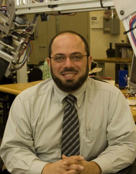 Nael Barakat is currently serving as professor and Chair of Mechanical Engineering at University of Texas at Tyler (UT-Tyler), TX. USA. He is a registered professionally engineer and a fellow of the American Society of Mechanical Engineers (ASME). Dr. Barakat has served in many professional roles such as: chair of the Division of Engineering Ethics at the American Society of Engineering Education (ASEE), and Chair of Technology and Society Division at ASME. His expertise and interest are in the areas of Mechatronics, Control, Robotics, and energy harvesting, as well as Engineering Ethics, Professionalism, Leadership, and Education. He has taught and delivered numerous courses, seminars, and workshops, internationally, and has developed research on different professional and educational engineering topics, including: ethics, professionalism, and leadership.
Nael Barakat is currently serving as professor and Chair of Mechanical Engineering at University of Texas at Tyler (UT-Tyler), TX. USA. He is a registered professionally engineer and a fellow of the American Society of Mechanical Engineers (ASME). Dr. Barakat has served in many professional roles such as: chair of the Division of Engineering Ethics at the American Society of Engineering Education (ASEE), and Chair of Technology and Society Division at ASME. His expertise and interest are in the areas of Mechatronics, Control, Robotics, and energy harvesting, as well as Engineering Ethics, Professionalism, Leadership, and Education. He has taught and delivered numerous courses, seminars, and workshops, internationally, and has developed research on different professional and educational engineering topics, including: ethics, professionalism, and leadership.
Authentic learning is a method that allows the students explore, discuss and construct concepts and relationships in a context involving real life projects and situations that are relevant to the student. This teaching/learning method becomes very valuable in preparing students for the 21st century competencies and for outcomes-based curricula and accreditation.
The purpose of this workshop is to share various authentic learning methods and implementation examples to provide an opportunity for attendees to reflect and brainstorm ways in which these methods can be integrated into the engineering+ curriculum. Attendees will discuss some of the ways these methods help develop engineering competencies of the 21st century. Some of the approaches include: The Learning Factory, Service Learning, Industry Internships, CDIO, PBL, Vertically Integrated Projects, Grand Challenges Scholars Program, Design Thinking and others. Competencies outcomes assessment strategies will be discussed.
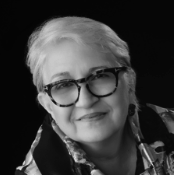 Lueny Morell, MS, PE, Ing.Paed.IGIP is Founder & Director of InnovaHiEd, and Vice Dean of the School of General Engineering at Beihang University in China. With a BS and MS in Chemical Engineering from the University of Puerto Rico and Stanford University, Lueny is passionate about STEAM education and innovation as pillars to develop talent to better serve society. During the last 5 years she has catalyzed the creation of two new schools of engineering: one in Silicon Valley, USA and one in Beijing, China. From 2002 to 2014 she was a member of various HP Labs teams and previously full professor of Chemical Engineering at University of Puerto Rico – Mayagüez. She is an IEEE Senior Member, an ASEE Fellow a member of the Pan-American Academy of Engineering, ABET Program Evaluator, member of the Advisory Board of the International Centre for Engineering Education (ICEE) of the UNESCO-Chinese Academy of Engineering and has received various awards for her work, including the prestigious US National Academy of Engineering Gordon Prize for innovations in engineering education in 2006. Recognized as one of the Engineering Education Pioneers in the US in 2014, Lueny is author of Essentials to Innovate Engineering & Related Disciplines as well as dozens of papers. She is also co-founder of IFEES (Past President), GEDC and SPEED. Lueny maintains two blogs on topics associated with innovation and engineering education and her team consulting/mentoring activities (www.luenymorell.com; www.innovahied.com).
Lueny Morell, MS, PE, Ing.Paed.IGIP is Founder & Director of InnovaHiEd, and Vice Dean of the School of General Engineering at Beihang University in China. With a BS and MS in Chemical Engineering from the University of Puerto Rico and Stanford University, Lueny is passionate about STEAM education and innovation as pillars to develop talent to better serve society. During the last 5 years she has catalyzed the creation of two new schools of engineering: one in Silicon Valley, USA and one in Beijing, China. From 2002 to 2014 she was a member of various HP Labs teams and previously full professor of Chemical Engineering at University of Puerto Rico – Mayagüez. She is an IEEE Senior Member, an ASEE Fellow a member of the Pan-American Academy of Engineering, ABET Program Evaluator, member of the Advisory Board of the International Centre for Engineering Education (ICEE) of the UNESCO-Chinese Academy of Engineering and has received various awards for her work, including the prestigious US National Academy of Engineering Gordon Prize for innovations in engineering education in 2006. Recognized as one of the Engineering Education Pioneers in the US in 2014, Lueny is author of Essentials to Innovate Engineering & Related Disciplines as well as dozens of papers. She is also co-founder of IFEES (Past President), GEDC and SPEED. Lueny maintains two blogs on topics associated with innovation and engineering education and her team consulting/mentoring activities (www.luenymorell.com; www.innovahied.com).
 Eduardo Vendrell Vidal (Carlet, Spain, 1967) Informatics BSc, PhD by the Polytechnic University of Valencia (Universitat Politècnica de València, UPV), Spain. Associate Professor at UPV. He has been involved in different national and international research projects, publishing in national and international conferences and journals in the field of Education, Robotics, CAD/CAM and 3D. He has participated and coordinated various innovative teaching projects, mainly in the context of adapting to the EHEA, publishing in national and international conferences. He is also advisor and expert reviewer for the National Agency for Quality Assessment and Accreditation of Spain (ANECA) and member of the Education in Engineering Committee of the World Federation of Engineering Organizations (WFEO). He has been President of the European Quality Network for Informatics Education (EQANIE) during the period 2015-2017, being the current past-President (2018). He has been the Dean of the School of Informatics (ETSINF) and President of the Spanish Council of Deans of Informatics Engineering (CODDII). Since June 2017, he is Vice-Rector for Studies, Quality and Accreditation of the Polytechnic University of Valencia.
Eduardo Vendrell Vidal (Carlet, Spain, 1967) Informatics BSc, PhD by the Polytechnic University of Valencia (Universitat Politècnica de València, UPV), Spain. Associate Professor at UPV. He has been involved in different national and international research projects, publishing in national and international conferences and journals in the field of Education, Robotics, CAD/CAM and 3D. He has participated and coordinated various innovative teaching projects, mainly in the context of adapting to the EHEA, publishing in national and international conferences. He is also advisor and expert reviewer for the National Agency for Quality Assessment and Accreditation of Spain (ANECA) and member of the Education in Engineering Committee of the World Federation of Engineering Organizations (WFEO). He has been President of the European Quality Network for Informatics Education (EQANIE) during the period 2015-2017, being the current past-President (2018). He has been the Dean of the School of Informatics (ETSINF) and President of the Spanish Council of Deans of Informatics Engineering (CODDII). Since June 2017, he is Vice-Rector for Studies, Quality and Accreditation of the Polytechnic University of Valencia.
This workshop gives an overview on how to construct meaningful questions to evaluate conceptual knowledge in engineering related areas. Due to their versatility, the type of questions that is most used to test conceptual understand are Multiple Choice Questions (MCQ). After a short presentation of the guidelines to write good quality MCQ, and of how to monitor item quality, the participants will engage in the elaboration of MCQ’s addressing very simple and familiar concepts.
The quality of the assessment is important to have credible scores in which to base educational judgements. The purpose of this workshop is to provide educators of engineering related areas with the tools to construct meaningful conceptual tests and to monitor their quality.
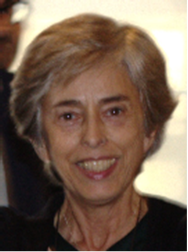 Teresa Restivo – Maria Teresa Restivo, Senior Researcher at the Mechanical Engineering Department of the Faculty of Engineering, University of Porto, Portugal, degree in Solid State Physics, PhD in Engineering Sciences. Her research and teaching activities are within the Automation, Instrumentation and Control Group of the Mechanical Engineering Department at the Faculty of Engineering, and with the System Integration and Process Automation Research Unit, which coordinates, funded by the Portuguese Science and Technology Foundation. These activities are related with sensors developments and applications, development of online available instrumented devices focused on health area and in online experimentation, and in the use of emergent technologies in training and in education. She is author (co) of articles, book chapters and books. She has been awarded prizes in education and in R&D areas. She has been project leader and team member at national and international levels. She has supervised a number of theses. She has five patents. She is member of the FEUP Scientific Council and Past President of International Society for Engineering Pedagogy. She has (ING-PAED IGIP) qualification.
Teresa Restivo – Maria Teresa Restivo, Senior Researcher at the Mechanical Engineering Department of the Faculty of Engineering, University of Porto, Portugal, degree in Solid State Physics, PhD in Engineering Sciences. Her research and teaching activities are within the Automation, Instrumentation and Control Group of the Mechanical Engineering Department at the Faculty of Engineering, and with the System Integration and Process Automation Research Unit, which coordinates, funded by the Portuguese Science and Technology Foundation. These activities are related with sensors developments and applications, development of online available instrumented devices focused on health area and in online experimentation, and in the use of emergent technologies in training and in education. She is author (co) of articles, book chapters and books. She has been awarded prizes in education and in R&D areas. She has been project leader and team member at national and international levels. She has supervised a number of theses. She has five patents. She is member of the FEUP Scientific Council and Past President of International Society for Engineering Pedagogy. She has (ING-PAED IGIP) qualification.
Diana Urbano – Auxiliary Professor at the Engineering Physics Department of the Faculty of Engineering of University of Porto (FEUP), Portugal. Diana Urbano has a degree and a PhD in Theoretical Physics. She has research in the area of Particle Physics. She lectures undergraduate Physics in several Engineering Masters Programs at FEUP. She has been recently integrated at a Unit of the the Associated Laboratory for Energy, Transports and Aeronautics (LAETA-INEGI/U.PORTO). Her research activities there are related with data analysis collected using devices developed there. These online available instrumented devices focus in health area as well as experimentation and the data analysis tools are used both in rehabilitation health area as well as in engineering education. In the context of this work she has published several conference papers and has been awarded with 2 prizes in education. She has conducted several workshops in international conferences and training sessions for instructors in Portuguese higher education institutions.
This workshop will cover issues related to competences and learning outcomes defined in the context of an IT program accreditation procedure. First, some issues related to best-practices on defining competences and learning outcomes will be taught, together with some teaching and assessment activities linked to the learning process. Then, the European Euro-Inf framework as a quality label for IT programs, defined by EQANIE, will be covered, as an example of accreditation procedure for quality assurance in the context of tertiary education. During the workshop, attendees will review all criteria considered in the Euro-Inf accreditation process as well as how to align a course considering the standard.
The purpose of the workshop is to provide a background on how to deal with the definition of competences and learning outcomes in an IT program of studies, aligned with teaching and assessment methodologies. Then, according to the criteria and outcomes of the Euro-Inf framework, attendees will work on matching competences and evidence how they are acquired by students enrolled in an IT program of studies, in the context of an accreditation procedure.
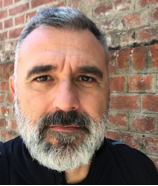 Eduardo Vendrell Vidal (Carlet, Spain, 1967) received a BSc in Informatics (1991) and a PhD in Informatics (2001) by the Polytechnic University of Valencia (Universitat Politècnica de València, UPV), Spain. Since 1991, he is Associate Professor at UPV, in the Department of Systems Engineering and Control. He is attached to the School of Informatics (Escola Tècnica Superior d’Enginyeria Informàtica, ETSINF, iSchool), teaching graduate and undergraduate courses in 3D and CAD/CAM, mainly in the Informatics BEng, but also in the MSc in Control and Industrial Informatics. He has participated and coordinated various innovative teaching projects, mainly in the context of adapting to the EHEA, publishing in national and international conferences. He is also advisor and expert reviewer for the National Agency for Quality Assessment and Accreditation of Spain (ANECA) and member of the Education in Engineering Committee of the World Federation of Engineering Organizations (WFEO). He has been President of the European Quality Network for Informatics Education (EQANIE) during the period 2015-2017, being the current past-President (2018). He has been the Dean of the School of Informatics (ETSINF) and President of the Spanish Council of Deans of Informatics Engineering (CODDII). Since June 2017, he is Vice-Rector for Studies, Quality and Accreditation of the Polytechnic University of Valencia.
Eduardo Vendrell Vidal (Carlet, Spain, 1967) received a BSc in Informatics (1991) and a PhD in Informatics (2001) by the Polytechnic University of Valencia (Universitat Politècnica de València, UPV), Spain. Since 1991, he is Associate Professor at UPV, in the Department of Systems Engineering and Control. He is attached to the School of Informatics (Escola Tècnica Superior d’Enginyeria Informàtica, ETSINF, iSchool), teaching graduate and undergraduate courses in 3D and CAD/CAM, mainly in the Informatics BEng, but also in the MSc in Control and Industrial Informatics. He has participated and coordinated various innovative teaching projects, mainly in the context of adapting to the EHEA, publishing in national and international conferences. He is also advisor and expert reviewer for the National Agency for Quality Assessment and Accreditation of Spain (ANECA) and member of the Education in Engineering Committee of the World Federation of Engineering Organizations (WFEO). He has been President of the European Quality Network for Informatics Education (EQANIE) during the period 2015-2017, being the current past-President (2018). He has been the Dean of the School of Informatics (ETSINF) and President of the Spanish Council of Deans of Informatics Engineering (CODDII). Since June 2017, he is Vice-Rector for Studies, Quality and Accreditation of the Polytechnic University of Valencia.
This workshop introduces Process-Oriented Guided Inquiry Learning (POGIL). In a POGIL classroom, teams of 3-4 learners work on activities with a particular structure based on learning cycles. Through scripted inquiry and investigation, learners interact to discover concepts and construct their own knowledge. Using assigned team roles and other scaffolding, learners develop process skills and individual responsibility. The teacher is not a lecturer, but an active facilitator who helps all students to be engaged and achieve the learning objectives. POGIL is an evidence-based approach, and has been shown to significantly improve student performance [2,3]. Workshop participants will work through POGIL activities as students, and work through POGIL meta-activities that are designed to help teachers learn core POGIL concepts, practices, and benefits. We will share POGIL materials for a variety of concepts. For more information, see http://cspogil.org and http://pogil.org. Laptops optional.
Clif Kussmaul, PhD, has developed numerous POGIL activities for CS Principles, CS1, CS2, software engineering, and AI. He is a co-PI for the NSF IUSE project for POGIL in Introductory CS courses, and was the PI for a NSF TUES project to develop POGIL activities for CS and to foster a POGIL community within CS. He is also a co-PI an NSF IUSE project to use POGIL to help prepare students to contribute to humanitarian FOSS. Clif has served on the POGIL Project Steering Committee, and has facilitated numerous ½ day, full day, and multi-day workshops in the US and in India, for faculty in CS, engineering, and other disciplines. Clif’s other interests include software engineering, and entrepreneurship.
This instructor-led hands-on workshop will include a high-level overview of the Modus Toolbox IDE and the PSoC 6 kit culminating in a project to send data to AWS (Amazon). This will be a 2-hour workshop. (Timing is flexible if need be).
Provide an overview of Cypress’ new Modus Toolbox™ IDE culminating in a hands-on workshop in which attendees create their own IoT node using the CY8CPROTO-062-4343 PSoC 6 Wi-Fi BT prototyping kit (attendees will get to keep the kit they use in the tutorial.)
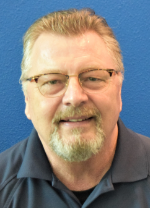 This hands-on tutorial workshop will be presented by Dr. Patrick Kane, Cypress University Alliance, USA, Patrick.kane@cypress.com
This hands-on tutorial workshop will be presented by Dr. Patrick Kane, Cypress University Alliance, USA, Patrick.kane@cypress.com
| 03 Apr 2019 | Submission of - structured abstracts (full paper, short paper, poster) for the main conference - Special Session Proposals |
| 26 Apr 2019 | - Notification of acceptance for abstracts for the main conference - Special sessions notification and announcement |
| 03 Jun 2019 | Submission of complete papers for all submission types |
| 28 Jun 2019 | Notification of Acceptance |
| 22 Jul 2019 | Author Registration Deadline |
| 22 Jul 2019 | Camera-ready due |
| 25 Sep 2019 | Conference Opening |